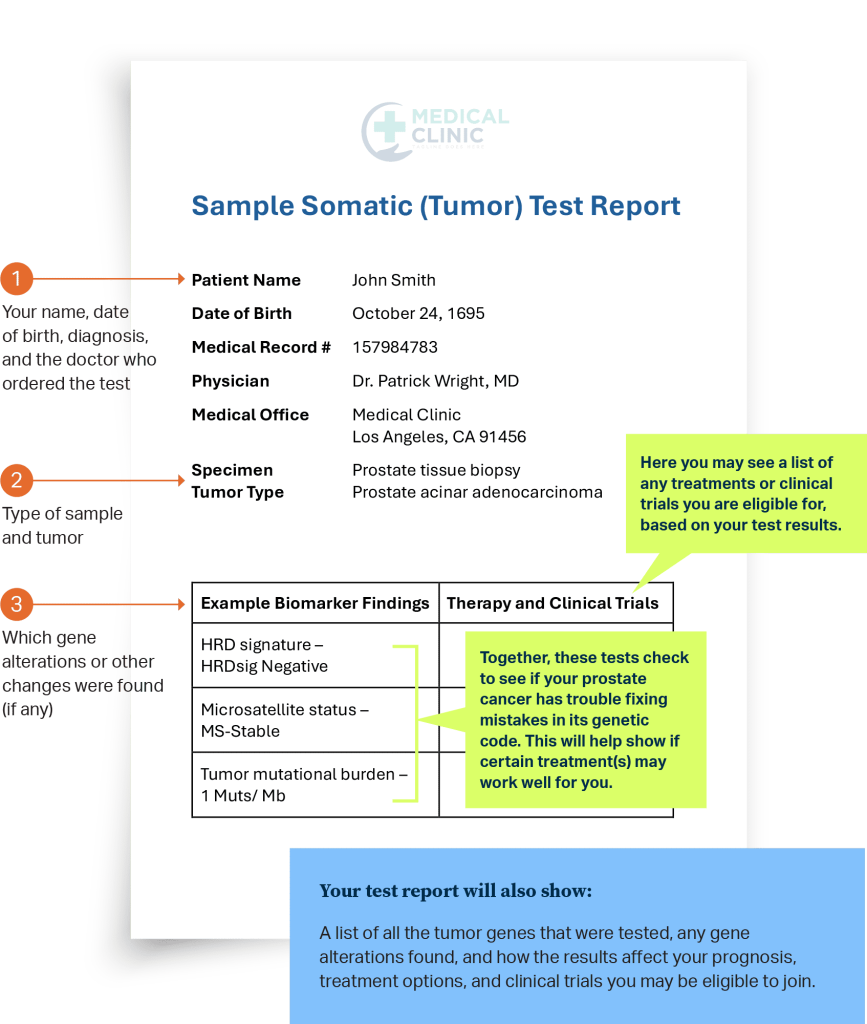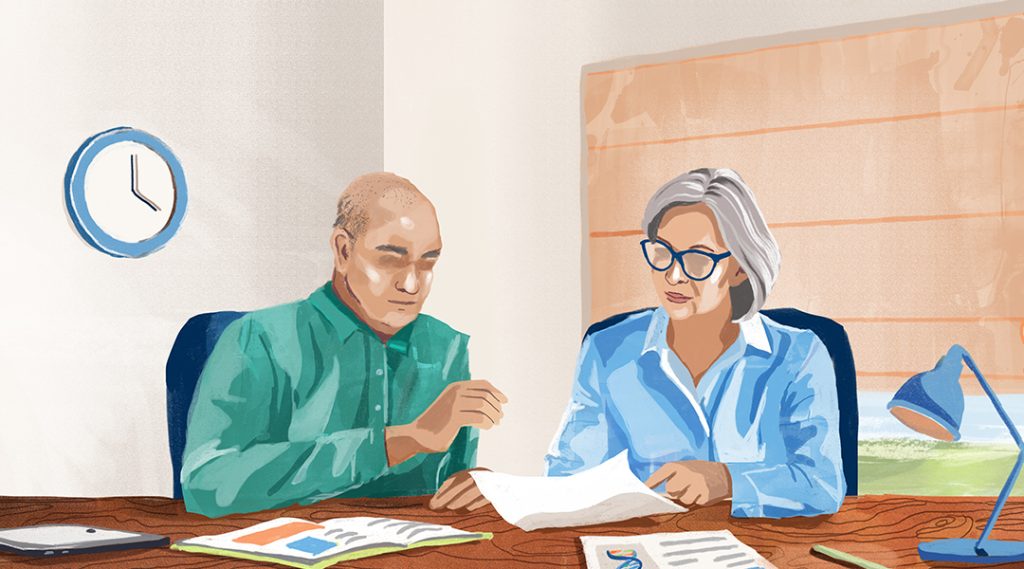Understanding your test results.

Understanding your test results
Understanding the basics of your test results will help you talk with your doctor and care team, ask questions, and work together to plan your treatment. Below are sample somatic and germline genetic test reports, and explanations of key findings.
Your somatic test report will show:

Your germline test report will show:

What if a gene alteration or another change is found?
The doctor who ordered the test will usually contact you to discuss the results, including any gene alterations or other findings. If not, contact the doctor and ask for an appointment to discuss your test results. During this visit, ask your doctor to explain what the results mean as far as your treatment options, prognosis, inherited cancer risk, and whether you may be eligible for any clinical trials based on your test results (here are questions you can ask).
My germline genetic test found a gene alteration. What should I tell my family?

If you have an inherited cancer risk gene alteration, your first and second-degree relatives (parents, children, siblings, aunts, uncles, etc.) may have it, too. This can increase their risk for certain cancers, including prostate cancer, male or female breast cancer, ovarian cancer, or pancreatic cancer. Having one of these gene alterations does not mean that someone will definitely get cancer, but it can increase their risk.
Often, your doctor will refer you to a genetic counselor to discuss your test results. Talking to a genetic counselor can make your germline genetic test results much easier to understand and help you decide what information to share with family members. This will help them make decisions about germline genetic testing (to find out if they also have the gene alteration), earlier or more intensive cancer screening, and other preventive steps to help improve health outcomes. If your family members want germline genetic testing, they should first talk with their doctor or a genetic counselor, to understand what the results would mean for them.
Having an inherited cancer risk gene alteration does not mean that someone will get cancer, but it can increase their risk.